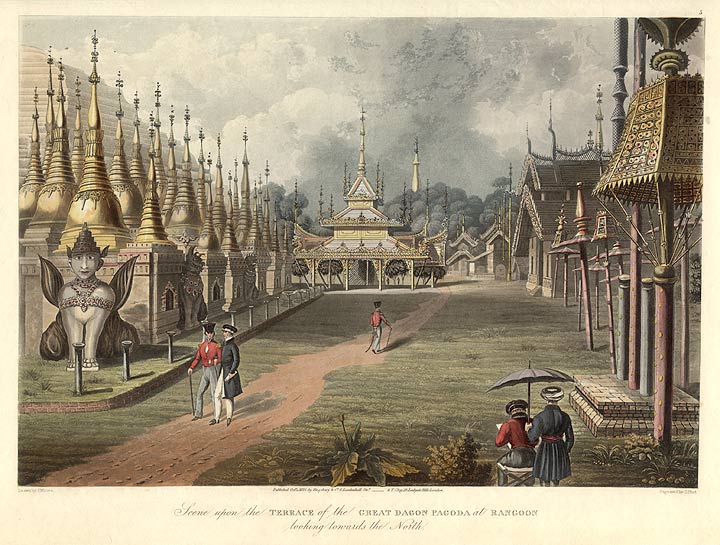|
Konbaung Burma
The Konbaung dynasty (), also known as the Third Burmese Empire (တတိယမြန်မာနိုင်ငံတော်), was the last dynasty that ruled Burma from 1752 to 1885. It created the second-largest empire in Burmese history and continued the administrative reforms begun by the Toungoo dynasty, laying the foundations of the modern state of Burma. The reforms, however, proved insufficient to stem the advance of the British Empire, who defeated the Burmese in all three Anglo-Burmese Wars over a six-decade span (1824–1885) and ended the millennium-old Burmese monarchy in 1885. Pretenders to the dynasty claim descent from Myat Phaya Lat, one of Thibaw's daughters. An expansionist dynasty, the Konbaung kings waged campaigns against the Lushai Hills, Manipur, Assam, Arakan, the Mon kingdom of Pegu, Siam, and the Qing dynasty of China—thus establishing the Third Burmese Empire. Subject to later wars and treaties with the British, the modern state of Myanmar ... [...More Info...] [...Related Items...] OR: [Wikipedia] [Google] [Baidu] |
Early Modern Period
The early modern period is a Periodization, historical period that is defined either as part of or as immediately preceding the modern period, with divisions based primarily on the history of Europe and the broader concept of modernity. There is no exact date that marks the beginning or end of the period and its extent may vary depending on the area of history being studied. In general, the early modern period is considered to have lasted from around the start of the 16th century to the start of the 19th century (about 1500–1800). In a European context, it is defined as the period following the Middle Ages and preceding the advent of modernity; but the dates of these boundaries are far from universally agreed. In the context of World history (field), global history, the early modern period is often used even in contexts where there is no equivalent "medieval" period. Various events and historical transitions have been proposed as the start of the early modern period, including ... [...More Info...] [...Related Items...] OR: [Wikipedia] [Google] [Baidu] |

